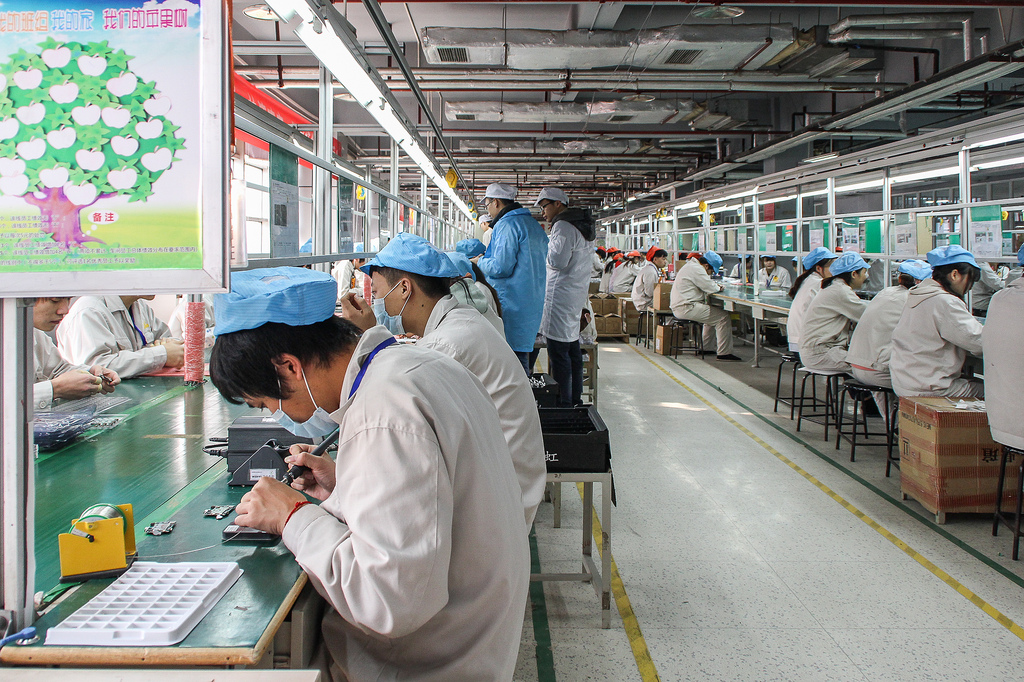Ethical Corporation reviews ten stand-out issues for corporate responsibility and sustainability in 2014
Climate action is not working
It was another worrying year on the global warming front. Many companies continue to take emissions-limiting measures, encouraged by growing evidence that controlling emissions can be correlated with increased profits. A CDP (Carbon Disclosure Project) index of companies that “demonstrate a superior approach to climate change mitigation,” published in October, found that the 187 firms on the list outperformed the Bloomberg World Index by nearly 10%. The leaders, according to CDP, include BMW, Centrica, Samsung and Unilever.
But it's still not enough. In April 2014, the northern hemisphere concentration of carbon dioxide was above 400 parts per million (ppm) for the whole month – the highest levels in 800,000 years and well on the way to the 450 ppm level said to be the trigger for dangerous levels of climate change. Globally, greenhouse gas emissions are climbing, with 2014 output expected to be up 2.5% from 2013. China emits close to 30% of the world total as it seeks to meet world consumer demand for manufactured goods.

In response, the European Union agreed in principle to cut its emissions by 40% by 2030 compared to 1990, and China and the United States in November did a deal, with the US pledging cuts by 2025 and China agreeing that its emissions should peak no later than 2030.
Mike Barry, director of Marks and Spencer's Plan A sustainability programme says this is cause for hope. “Is it perfect? No it isn’t. But it has injected pace and ideas into the climate process and thrown down the gauntlet to those who wanted to hide behind the big two’s inaction,” he says. Paris beckons for climate negotiators, who hope to secure a global emissions deal there at the United Nations summit in late 2015.
Driving divestment
During 2014, the campaign to persuade investors to express their lack of confidence in fossil fuels by selling their coal and oil stocks continued to grow. Educational institutions are increasingly divesting – in October, Glasgow University became the first European university to do so, following the lead of a number of US institutions. Other divestors include churches, municipalities and Norway's largest pension fund.
So far, the divestment campaign is no more than a minor irritation for the fossil fuel leviathans. Divestments involve holdings of hundred of millions of dollars, but the market value of the world's oil, gas and coal companies is a staggering $5 trillion. But the writing could be on the wall. Speaking at the European Parliament in November, Rajendra Pachauri, the UN Intergovernmental Panel on Climate Change chairman, said that to combat global warming without carbon capture and storage, “by the end of the century, power generation from fossil sources will obviously have to be phased out.” That's just 85 years away – not so distant considering that energy investments have decades-long perspectives. Long-term investors in fossil fuels might start to increasingly consider their options.

Solar success
If the transition to a low-carbon world is to succeed, says Sean Kidney, CEO of the Climate Bonds Initiative, which promotes standards for green investment, “we need all of Pacala and Socolow's wedges to grow at maximum rates.” He is referring to the work of Princeton University academics Stephen Pacala and Robert H. Socolow, who have argued that to avoid “dramatic” climate change, the world must avoid 200 billion tonnes of greenhouse gas emissions in the next half century.
Pacala and Socolow split this 200 billion tonnes into eight “wedges” of 25 billion tonnes each: energy efficiency, fuel switching, carbon capture and storage, nuclear, wind, solar, biomass fuels and natural sinks. In most of these areas, activity needs to be hugely ramped up.

Except one. A largely untold story in 2014 was the massive growth in solar, especially in the United States, where the increase was 36% over 2013, according to the Solar Energy Industries Association. Since 2010, US solar capacity has exploded by more than 400%, though overall it still meets only a small amount of electricity demand. Major companies are leading the charge with rooftop installations: Walmart, Costco and Ikea are among the leaders.
Some other countries are seeing similar developments. “The world owes a huge debt to the German and Chinese governments,” Kidney says. “By placing very large orders and guaranteeing contracts, they have dramatically reduced the cost of solar in quickstep time.”
What goes around
One of the buzz phrases in 2014 was the circular economy, popularised especially by former round-the-world yachtswoman Ellen MacArthur, who has established a foundation to promote circular economy ideas to companies. The circular economy, according to Ellen MacArthur, is “regenerative by design” – the resources that go in, rather than eventually becoming waste, ultimately become inputs into new products.

The implications for companies are potentially huge. They will have to redesign their products to be easily deconstructable and recyclable, and will have to take back control of their products when they become waste. The Netherlands is taking a lead. The Dutch government has a circular economy policy and believes putting the principles into practice could add 1% to GDP.
Dutch companies large and small are testing new approaches. Lighting giant Philips has introduced a “pay per lux” scheme – the company installs lighting and retains ownership; the customer pays for the operation of the lighting over a 15 year period. Trendy Dutch brand Mud Jeans, meanwhile, offers jeans on a lease. The customer pays monthly and after one year either keeps the jeans or returns them to the company to be recycled. “We're keeping current customers and getting new customers every day,” says a Mud Jeans spokesman.
Share and care?
As the circular economy emerges, so the sharing economy develops. The trail was blazed by Airbnb, a platform for people to rent their spare apartments and rooms to travellers, but during 2014, the most prominent sharing economy phenomenon was Uber. This matches people needing rides with drivers prepared to provide them, at rates that can undercut standard taxi charges.
Services such as Uber are a threat to incumbent companies. In San Francisco, where Uber is headquartered, use of standard taxis declined by 65% in the 15 months to August 2014, according to the city's Metropolitan Transportation Agency. Taxi drivers and companies have gone to court in a number of countries to restrict or ban Uber. Uber has been accused of not playing by the same rules that taxi firms must obey.
Sharing economy services will surely increasingly emerge and develop. Crowdfunding, for example, could in time provide an effective alternative financing route for businesses that are fed up with banks. But a sharing business is not necessarily an ethical business. Uber has been involved in several controversies that bring its practices into question, including accusations that it tried to undermine competitors by ordering unwanted rides from them, that it turned away blind customers and that its senior management threatened to smear journalists.

Related to the sharing economy is what might be called the do-it-yourself economy – people pooling resources to produce products that previously only large companies could manage. The prime example of this is Fairphone, a Dutch initiative that decided to stop complaining about sustainability issues related to smartphones and manufacture its own ethical and conflict-mineral free version. Fairphones successfully went on sale in 2014. “Our jaws are dropping at the rate we're selling out of Fairphones,” said the initiative's communications director Tessa Wernink.
According to Marks and Spencer's Plan A director Mike Barry, 2014 saw a distinct move in circular and sharing economy ideas. “They lack scale but they’ve made the leap from textbook to laboratory, where they are being tested and kicked around,” he says.
Taxing times
Corporate tax avoidance remained high on the agenda in 2014, but the spotlight shifted to the way companies are treated by tax authorities. In October, European competition authorities opened investigations into Apple in Ireland, Starbucks in the Netherlands and Fiat in Luxembourg, on the basis that those countries might have given such overly lenient tax breaks to the companies that it amounts to illegal state aid.
Then in November, the International Consortium of Investigative Journalists published an exposé of tax deals in Luxembourg, based on a tranche of leaked documents from PwC (PricewaterhouseCoopers) in the Grand Duchy. The documents indicated that the authorities regularly and casually signed off on arrangements under which companies could shift profits around and reduce tax on money channelled through Luxembourg to below 1%. The scandal is sure to rumble on in 2015. PwC said in a statement that its tax advice always takes into account “how any tax decisions will be viewed by wider stakeholders.”
Protecting privacy
Among the many consequences of the actions of US whistleblower Edward Snowden, who revealed the extent of government surveillance of internet communications, was that data privacy became a corporate responsibility issue in 2014. Companies such as Facebook and Google were caught in the firing line when it became apparent that they were turning user data over to the US administration in response to legal orders.

At first companies played the revelations down, but as it became apparent that privacy was a real and growing concern for customers, they took a more robust line, disclosing information on the number of subpoenas received, and on the steps taken to resist government intrusion. Leading the way was Vodafone, which reported on a country-by-country basis government requests for customer personal data.
Kasey Chappelle, Vodafone's global privacy counsel, speaking in November at the International Association of Privacy Professionals Europe Data Protection Congress 2014, said that privacy has become “front page bad news,” and was leading to consumer cynicism about companies. There are major opportunities for companies to provide user-friendly privacy tools and allow individuals to manage their own data and get value from it, Chappelle said.
Reporting rules
Once voluntary standards are in place, there is only one way things can go – towards mandatory requirements. The last few years has seen development of a host of optional reporting standards and, sure enough, regulators are increasing obliging companies to use them.
Charlotte Wolff-Bye, head of sustainability for Norway's Statoil, says that lawmakers are emphasising less the regulation of corporate behaviour, but instead want companies to open themselves up to greater scrutiny. “Sustainability reporting requirements have become more and more detailed,” she says. In particular, the European Union in October 2014 adopted a law on non-financial disclosure under which listed companies with more than 500 employees must publish environmental, social and human rights information. The rule will apply from 2017.
Alice Korngold, founder of sustainability advisers Korngold Consulting, says that transparency remains fundamental to the good behaviour of corporations. “We shouldn't trust companies,” she says. “They're not in the business of doing good the way non-profits are.” However, they do have a “profit motive to solve major problems,” and more and more companies are realising that they can look at global challenges in this way.
The continuing banking problem
Something is rotten at the heart of the economy: the banks. There were plenty of banking culture change programmes in 2014, such as the Barclays Transform initiative, but also plenty of evidence that banks have some way to go before they refocus on their main role of providing liquidity to the economy.
In 2014, to add to the revelations of the last few years, a foreign exchange fixing scandal emerged, leading to the suspension of traders and the setting aside of money to pay fines at banks such as Barclays, Citigroup and Royal Bank of Scotland. In July, Andrea Leadsom, economic secretary to the Treasury and a former banker, said she expected still further “cringeworthy announcements” about banking misbehaviour.

In November, Belgian authorities formally charged HSBC with fraud and money laundering to hide the true wealth of rich clients. “If banks are not trying to earn abnormal returns from rigging markets, then they are depriving exchequers around the world by hiding their wealthy clients' assets in shady places,” says Crawford Spence, a professor at Warwick Business School. “It seems as if nothing has been learned from the financial crisis.”
Positive partnerships
Tie-ups between companies and non-profit organisations to achieve environmental or social ends are nothing new, but 2014 arguably saw partnerships become even more wide-ranging and ambitious.
One notable example was collectively.org, an online platform that sets out to promote the virtues of sustainability to “millenials” – those aged between 18 and 30. The founding partners are Unilever, Coca-Cola, Marks and Spencer, BT Group and Carlsberg, but they also bought on board competitors such as C&A and Pepsico. In total, 31 partners are involved, including sustainability think tank Forum for the Future and trendy media group Vice, which oversees the editorial side.
Collectively has been divisive, illustrating the ongoing debate about the role of corporations in sustainability. It has been criticised as a cynical corporate attempt to be seen to be doing something, but has also been applauded as a transparent statement by major corporations of their progressive position on key sustainability issues. Leading sustainability campaigner Jonathan Porritt, a founder of Forum for the Future, said it was a genuine attempt to “change the mood music on sustainability,” and could “bring sustainability to life.”
2014 review banking circular economy climate action Corporate tax digital privacy divestment financial sector privacy reporting rules sharing economy solar energy tax avoidance top trends

